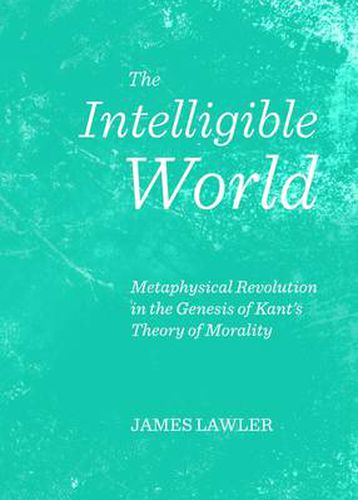Readings Newsletter
Become a Readings Member to make your shopping experience even easier.
Sign in or sign up for free!
You’re not far away from qualifying for FREE standard shipping within Australia
You’ve qualified for FREE standard shipping within Australia
The cart is loading…






Understanding Kant’s pre-critical philosophy is central to appreciating his three critiques. Overshadowed by the critiques, the early work stands on its own as a central contribution to the development of the philosophy of its time. In addition, it not only prepares the way for the critiques, but constitutes a hidden background without which they cannot be adequately understood. Here we find Kant’s great cosmology, which is what Kant later regarded as the thing-in-itself, persisting behind his notions of the noumenon, the intelligible world, and the postulates of morality. Although he finally decided that his grand cosmological vision could not be demonstrated, what cannot be strictly known can still be conjectured, justifiably believed, or postulated. Kant’s only possible proof for the existence of God remains implicit in the first critique. The only writer about whom Kant ever dedicated a major work, Dreams of a Spirit-Seer Elucidated by Dreams of Metaphysics, was Emanuel Swedenborg. Kant here explores a conjectural metaphysics of matter and spirit, and further formulates the meaning of the intelligible world, providing the ontological framework of his later ethics. If only one of Swedenborg’s documented spirit-seeings was valid, how feeble must the metaphysical dreams of philosophers themselves seem.
$9.00 standard shipping within Australia
FREE standard shipping within Australia for orders over $100.00
Express & International shipping calculated at checkout
Understanding Kant’s pre-critical philosophy is central to appreciating his three critiques. Overshadowed by the critiques, the early work stands on its own as a central contribution to the development of the philosophy of its time. In addition, it not only prepares the way for the critiques, but constitutes a hidden background without which they cannot be adequately understood. Here we find Kant’s great cosmology, which is what Kant later regarded as the thing-in-itself, persisting behind his notions of the noumenon, the intelligible world, and the postulates of morality. Although he finally decided that his grand cosmological vision could not be demonstrated, what cannot be strictly known can still be conjectured, justifiably believed, or postulated. Kant’s only possible proof for the existence of God remains implicit in the first critique. The only writer about whom Kant ever dedicated a major work, Dreams of a Spirit-Seer Elucidated by Dreams of Metaphysics, was Emanuel Swedenborg. Kant here explores a conjectural metaphysics of matter and spirit, and further formulates the meaning of the intelligible world, providing the ontological framework of his later ethics. If only one of Swedenborg’s documented spirit-seeings was valid, how feeble must the metaphysical dreams of philosophers themselves seem.